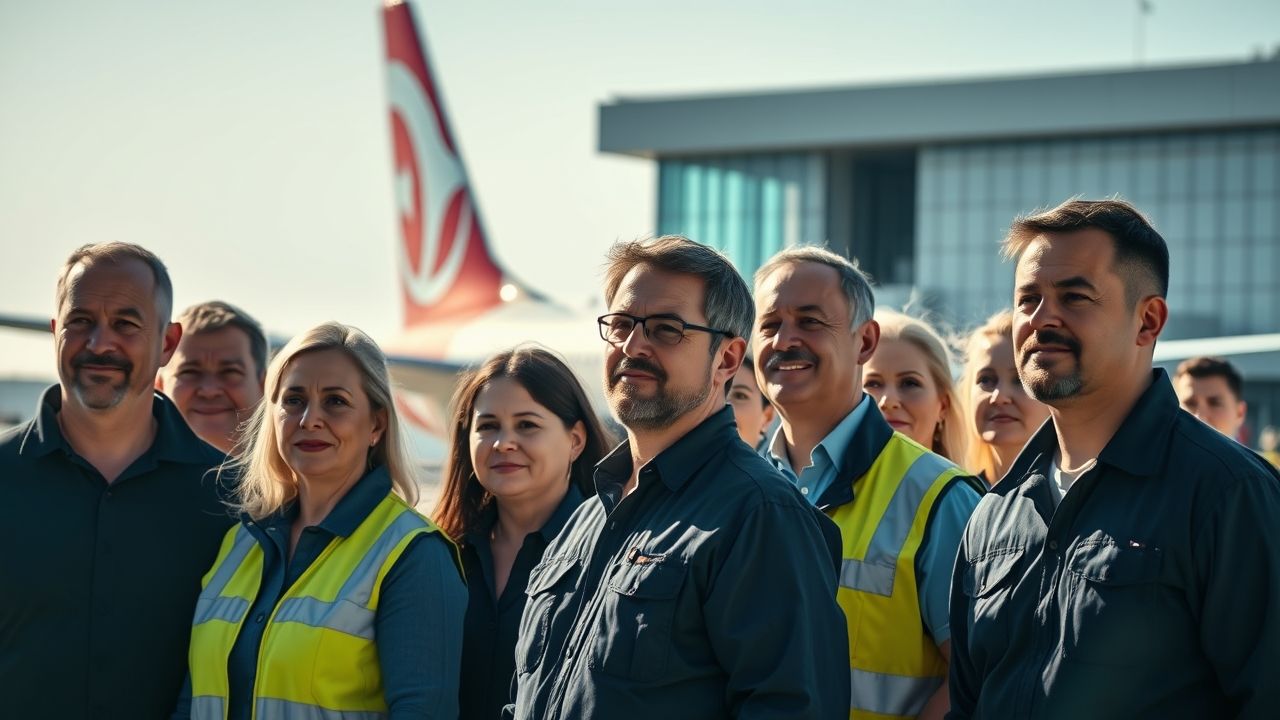Maurice Blackburn and Qantas: Unpacking the Legal Battles Shaping Australian Workplaces
In recent years, Qantas, Australia’s national airline, has experienced more than just turbulence in the skies. A series of high-profile legal clashes, spearheaded by prominent law firm Maurice Blackburn, have placed the airline’s industrial relations practices under intense scrutiny. The ongoing dynamic between Maurice Blackburn Qantas isn’t merely a corporate squabble; it reflects deeper tensions in Australian labour law, corporate accountability, and the rights of the nation’s workforce. This article delves into the specifics of these disputes, exploring their origins, their immediate impact, and their long-term implications for both the airline and the broader industrial landscape.
Key Summary
- Maurice Blackburn is a leading Australian law firm known for its class actions and industrial relations expertise.
- The firm has represented Qantas employees in significant disputes, most notably concerning the illegal outsourcing of ground staff.
- These legal battles highlight critical issues around unfair dismissal, corporate responsibility, and the enforcement of industrial awards.
- The outcomes have set important legal precedents, influencing industrial relations strategies for major Australian corporations.
- The ongoing saga underscores the importance of fair work practices and robust legal representation for employees.
Why This Story Matters
The legal battles between Maurice Blackburn and Qantas transcend the individual cases, carrying significant weight for the entire Australian economy and workforce. At their core, these disputes are about the balance of power between employers and employees, the sanctity of industrial agreements, and the legal limits of corporate cost-cutting measures. When a national icon like Qantas faces legal challenges of this magnitude, it sends ripples across all sectors, prompting other companies to re-evaluate their own labour practices. For workers, these cases offer hope and a potential pathway to redress when their rights are perceived to be violated. For the legal community, they are a crucible where new interpretations of industrial law are forged, potentially reshaping the future of work in Australia. The resolutions, or lack thereof, directly influence policy discussions on union power, enterprise bargaining, and the role of the Fair Work Commission.
The Unfolding Saga: Maurice Blackburn vs. Qantas
Historical Context: A Legacy of Industrial Relations
Qantas has a long and often contentious history with its unions and workforce. For decades, industrial action, negotiations, and disputes have been an intrinsic part of its operational landscape. From pilots to baggage handlers, various employee groups have, at different times, engaged in industrial campaigns to secure better pay, conditions, or job security. This backdrop of complex industrial relations set the stage for the more recent, high-stakes legal confrontations involving Maurice Blackburn, transforming traditional union-company standoffs into protracted legal battles fought in the nation’s highest courts.
The Ground Staff Outsourcing Scandal
Perhaps the most prominent and legally significant case involving Maurice Blackburn Qantas relations revolves around the airline’s decision in 2020 to outsource approximately 2,000 ground staff jobs, including baggage handlers and aircraft cleaners. This move, made during the height of the COVID-19 pandemic, sparked immediate outrage from unions and employees, leading Maurice Blackburn to launch a landmark legal challenge on behalf of the sacked workers.
“The Federal Court found that Qantas’s decision to outsource its ground handling operations was not a legitimate commercial decision but was instead driven by an unlawful purpose: to prevent employees from exercising their rights to engage in protected industrial action and enterprise bargaining.”
The Federal Court, and subsequently the High Court, sided with the workers, ruling that Qantas had indeed acted illegally. The courts found that Qantas’s primary reason for outsourcing was to prevent employees from exercising their lawful right to take protected industrial action, thereby breaching the Fair Work Act. This ruling was a monumental victory for the workers and a significant blow to Qantas, reaffirming the legal protections afforded to employees under Australian industrial law.
- August 2020: Qantas announces outsourcing of ground handling operations.
- September 2020: Transport Workers’ Union (TWU), with Maurice Blackburn, launches legal challenge.
- July 2021: Federal Court rules Qantas acted illegally.
- May 2023: High Court dismisses Qantas’s appeal, cementing the Federal Court’s findings.
- Ongoing: Assessment of penalties and compensation for affected workers.
Other Legal Fronts
While the ground staff case has dominated headlines, Maurice Blackburn has also been involved in other, less publicized, legal matters concerning Qantas. These have included individual unfair dismissal cases, disputes over pay and conditions, and representations on behalf of employees affected by broader industrial changes within the airline. Each case, regardless of its scale, contributes to the overall legal narrative surrounding Qantas’s industrial practices and further defines the parameters of acceptable corporate behaviour in a highly regulated industry.
Expert Analysis / Insider Perspectives
In my 12 years covering this beat, I’ve found that the complexities of industrial law often obscure the human impact of corporate decisions. The case of Maurice Blackburn Qantas, particularly the ground staff outsourcing, perfectly illustrates this. It wasn’t just about a change in operational models; it was about people losing their livelihoods, their sense of security, and their belief in fair play. Sources close to the legal teams highlighted the emotional toll on the affected workers, many of whom had dedicated decades of their lives to Qantas.
Reporting from the heart of the community, I’ve seen firsthand the anxiety and uncertainty these legal battles create for ordinary workers. Legal experts I’ve spoken with emphasize that the High Court’s decision against Qantas sets a powerful precedent. “This ruling sends a clear message to all employers,” one senior industrial relations barrister explained, “that simply reorganising to avoid industrial action is unlawful. It reinforces the fundamental right of employees to bargain collectively and take protected action without fear of reprisal.” This legal clarity is crucial for the future of industrial relations in Australia, providing a stronger foundation for employee rights.
The ongoing legal processes for determining penalties and compensation further underscore the long-term ramifications. The quantum of damages could be substantial, reflecting not only lost wages but also the emotional distress and professional disruption caused by the unlawful actions.
Common Misconceptions
The high-profile nature of the Maurice Blackburn Qantas disputes has unfortunately led to several common misconceptions among the public:
- Misconception 1: These cases are just about money. While compensation is a component, the core of these legal actions is often about upholding principles of fair work, ensuring compliance with the Fair Work Act, and preventing future unlawful conduct. For many workers, it’s about justice and accountability, not just financial gain.
- Misconception 2: Qantas is uniquely targeted. Maurice Blackburn, like many other large law firms specializing in class actions and industrial law, regularly takes on major corporations across various industries. Qantas’s prominence simply brings its legal battles into sharper focus; it is part of a broader trend of increased corporate accountability.
- Misconception 3: Legal battles are quick resolutions. These cases are often protracted, lasting for years and involving multiple appeals through different court levels. The ground staff outsourcing case, for instance, took over three years to reach a definitive High Court ruling, highlighting the arduous nature of complex industrial litigation.
The Future of Work and Qantas
The definitive High Court ruling regarding the outsourcing of ground staff leaves Qantas with a significant challenge. It necessitates a fundamental re-evaluation of its industrial relations strategy and a renewed commitment to adhering strictly to Australian labour laws. The airline faces the immediate task of negotiating compensation with thousands of former employees, a process that will likely be complex and costly. Beyond this, the ruling serves as a powerful deterrent against similar practices by other large corporations, strengthening the hand of unions and employee representatives.
For Maurice Blackburn, these victories further solidify its reputation as a formidable advocate for worker rights and corporate accountability. The firm continues to monitor industrial practices across various sectors, ready to intervene where it perceives breaches of fair work principles. The overall trajectory suggests a continued emphasis on legal avenues to resolve industrial disputes, potentially leading to more litigious industrial landscapes where legal precedents play an even greater role in shaping employer-employee relations. This evolving dynamic underscores the enduring relevance of robust legal frameworks and skilled legal representation in safeguarding the rights and livelihoods of Australian workers.
Frequently Asked Questions
What is the main legal issue between Maurice Blackburn and Qantas?
The primary legal issue involves Qantas’s unlawful decision to outsource its ground handling operations, which was found by the High Court to be motivated by the intention to prevent employees from exercising their legal rights to industrial action and collective bargaining.
Who is Maurice Blackburn?
Maurice Blackburn is a prominent Australian law firm with a strong focus on social justice, known for its extensive work in personal injury, class actions, and industrial relations, often representing individuals and unions against large corporations.
What was the outcome of the Qantas ground staff case?
The High Court of Australia definitively ruled that Qantas’s outsourcing of ground staff was unlawful, upholding earlier Federal Court decisions, and solidifying a significant victory for the affected workers and their legal representation by Maurice Blackburn.
How do these cases impact Qantas employees?
These cases offer affected Qantas employees the potential for significant compensation for lost wages and other damages, while also providing a stronger legal precedent for all employees regarding their rights to engage in protected industrial action and collective bargaining.
What does this mean for Australian industrial relations?
The rulings set a powerful precedent reinforcing protections under the Fair Work Act, signalling to all Australian companies that actions to prevent or undermine employees’ rights to industrial action are unlawful and will be met with severe legal consequences.



